Page Speed
Page speed and website performance should be treated as customer service.
High Expectations – Visitors Demand More
Customer expectations on the Web are very high, and are only getting higher. People expect a webpage to achieve a desired task properly and quickly. If your website doesn’t provide snappy results, visitors will just hit the back button and move on to the next site.
It’s simple really, people don’t like waiting. They don’t like waiting in banks, at the grocery store, or in a restaurant for food. These types of expectations transition to the Web as well. Because of these expectations, page speed needs to be thought of as part of your “customer service” strategy.
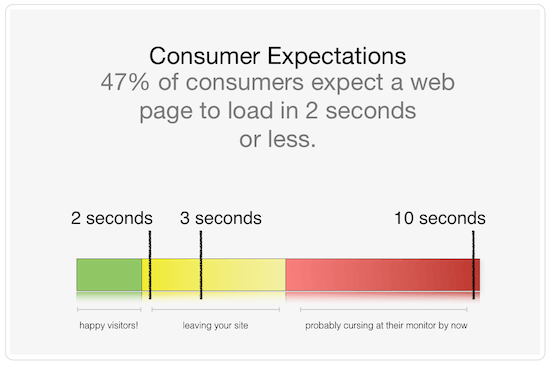
These statistics are all pulled from sources like Amazon, Google and Gomez; all of which have a vested interest in website performance, because it effects the bottom line of their core business. Faster websites help Google sell more advertisements, and help Amazon sell more products.
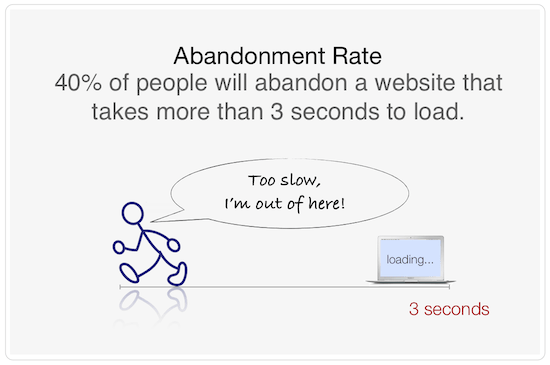
In web analytics, there is a term known as bounce rate. This is the number of people who only looked at one page of your site. When we analyze web sites with a high bounce rate, one of the areas we look at first is the page load time. We have to consider that maybe it wasn’t an on-page variable that the user didn’t like. Maybe the user didn’t even stick around long enough for the page to fully load. Any page that takes longer than 3 seconds to load, can be considered a liability to your business. Imagine if you owned a shop, and the door to your shop was slightly jammed up taking a long time to open. How many customers would wait it out or assume you were closed?
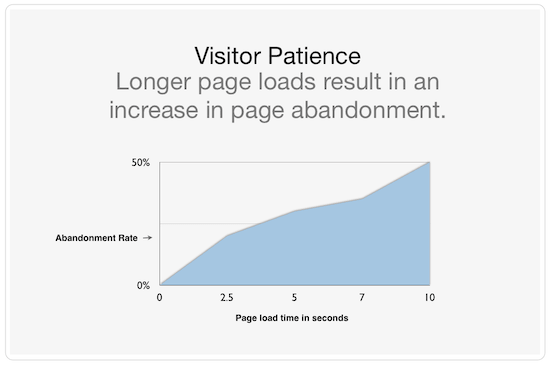
It is a simple formula. The longer you make them wait, the greater chance you have of losing them as a customer.
A Slow Website = Lost Business
A slow website actually costs you money! Amazon has done study after study providing data to show that slower page loads, result in lower sales and fewer returning customers. Since the architecture and development of the site is something Amazon can control, it makes sense to do everything possible to increase the speed at which they can service their customers. It makes them more money if they do!
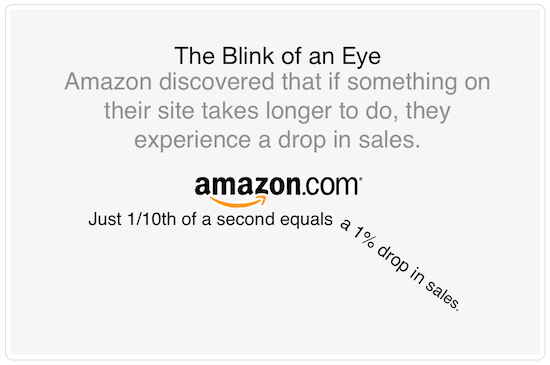
Again thinking about page speed as customer service, studies show if people are frustrated with your web site’s performance, they are less likely to return. This is an easy concept to understand. Have you ever been to a restaurant and had to wait an hour for your lunch? Did it frustrate you? Did you ever go back? Did you tell your friends about it?
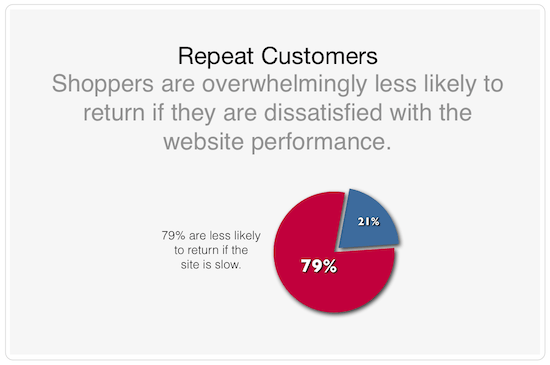
Google Cares About Load Times And So Should You
Google is a company built on data. They strive to get every bit of efficiency out of all they do. They see a direct correlation with page speed and search use. That’s why this last year, they officially announced that page speed is a ranking factor for sites.
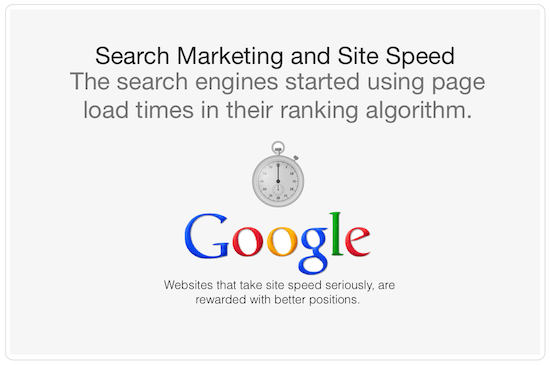
Google runs controlled experiments all the time. When looking at the effects of page speed, they purposely slowed down the search results for a select group of users, and then compared the results to the normal users.
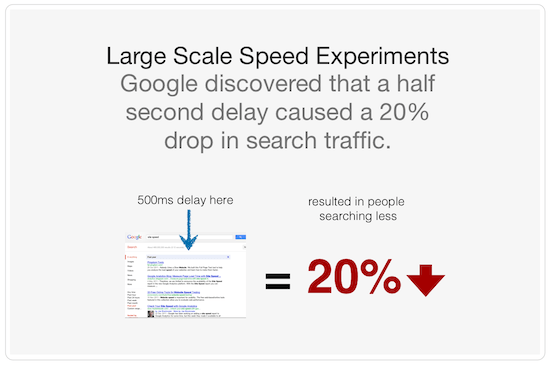
Fast Websites And Your Bottom Line
It’s not too bold to say that faster loading websites will improve all areas of your Internet marketing. Put another way, why would you not focus on increasing the speed at which you can serve your users and customers?
Faster loading websites have better conversion rates, better usability and customer satisfaction, lower bounce rates, more sales, and even lower advertising costs by serving visitors more efficiently. There is absolutely no reason to ignore page speed.
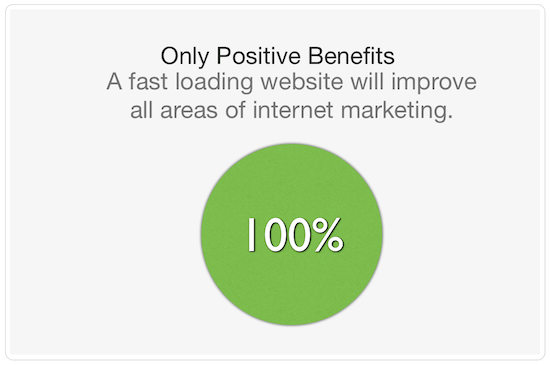
How Does Your Site Measure Up?
At Relentless, we are pretty obsessed with page speed and load times. We’ve seen the improvements to our clients bottom line and even on our own site. Faster websites create happy users, and happy users are better for business.
Posted on: 04/04/2012
Updated on: 12/18/2017
Posted by: Craig Hauptman – President & Founder
Related Insights:
Search Traffic: Paid vs. Organic – The Fundamental Differences and How to Leverage Each Type
Mobile Majority – Why a Mobile-First Approach is so Important
The AIDA Model – When to Use Specific Digital Ad Platforms Throughout the Sales Funnel
A/B Testing for Continual Improvements – Split Testing for Incremental Website Improvements
AI Chatbots & Search Engines – How AI Chatbots Will Impact Search Engines
















